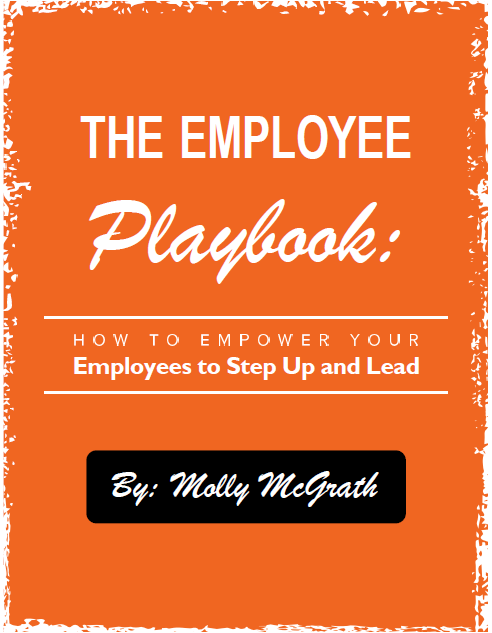 What really makes an employee work late and stick out the tough times?
What really makes an employee work late and stick out the tough times?
In our experience, employees who feel appreciated are more than willing to work together to support you versus becoming a clock watcher who slips out the door at 5 p.m. sharp.
It’s 5:01 p.m. and you’ve been rushing to get a document done that is going to bring in much-needed cash. To boot, it is overdue and the client has already called three times looking for the ETA. You finally finish and rush down the hall to your assistant’s office to ask her to print, assemble and overnight it.
The office is dark … computer off … she has left for the day. Again. You didn’t realize it was past 5 p.m. You have no idea what your online login is and end up driving to an overnight drop-off location that is still open, which results in your being late to your daughter’s dance recital. Frustrated and stressed, you begin preparing the “talk” you are going to have with your assistant about leaving without checking to make sure you don’t need anything, about her employee mentality, about lack of process for tracking work in progress.
In the morning, you walk into her office and start with “We need to talk.” She bursts into tears and says she can’t believe you think she isn’t supportive after all the lunches she has worked through and times she has stayed late, and adds that you never point out anything she does well – just the mistakes.
You feel unappreciated. She feels unappreciated. What now?
We have been working with “The 5 Languages of Appreciation in the Workplace” by Gary Chapman and Paul White in our weekly Team Empowerment Program™. Without getting into the authors’ take on this topic, we believe there are also 5 OFFICE love languages, and we feel that it’s important to understand them. “Love” in this context means each person shows up at work most days with an authentic sense of empowerment, appreciation and connection and could honestly say “I truly love this place and the people I work with!”
Recently in the Team Empowerment Program™, the conversation about fear of conflict came up. We discussed how it typically boils down to the fact that the people involved are usually speaking two different languages and not aware of the language of the other. Both are trying so hard and both are feeling unappreciated and unheard. The book shows that, when you speak to people IN their love language, they become happy, secure and fulfilled in the relationship and a lot of frustrations, struggle and resentment goes away. They are willing to face problems head on without wrapping them in layers of drama and emotion, which allows them to support you because they are confident in their relationship with you.
The 5 languages are:
1. Words of Affirmation
2. Gift Giver
3. Acts of Service
4. Quality Time
5. Physical Touch **Note, for the office we’d replace this with eye contact, which means not checking your iPhone and email while they are speaking, and actually putting whatever you are working on aside and leaning in with general interest and presence.
In the above example, I’d venture to say the assistant’s language is Words of Affirmation and the boss is Acts of Service. If the boss routinely verbally affirms his assistant when she does good work, she will feel confident in their relationship and know that he values her as part of the team. If the assistant routinely supports the boss with the things he asks, like checking in before she leaves so he isn’t left to blunder through an unfamiliar task alone, he will feel appreciated by his team for how hard he works, too. When he lacks that feeling, it is a constant trigger for him that she comes across like a clock watcher.
The disengagement from Office Love Languages is often the very reason certain incentive programs or perks do not seem to get the response the entrepreneur anticipates. If you have team members who feel that you never listen, never make time for questions and never stop to train them on how you would like things done, and their language is Quality Time – they need these things to feel appreciated and confident. (We will be so bold as to say this is 95% of your support team’s Office Love Language.) If you are giving team members bonus money but their love language is Words of Affirmation, they may not be that responsive to the bonus set out. At best, it will have a short shelf life because their “Love Language” is not being fulfilled.
The more you speak your team’s Office Love Language and let them know what makes you feel appreciated, the more willing you all will be to work together and support each other versus them slipping into clock watching and sneaking out for fear of the “bomb” they are going to get at 5 p.m.
Team members who feel appreciated and “love” the job and the people they work with are team members who will stick with you in good times and tough times.
If you’re having difficulty communicating with your team and dealing with possible clock watchers, visit us at www.yeschick.com to take our complimentary assessment, “Are you running your business or is it running you?” and we’ll conduct a complimentary 30-minute phone review of your results.
Champions of your continued success,
Molly and Laney
molly@yeschick.com
laney@yeschick.com

